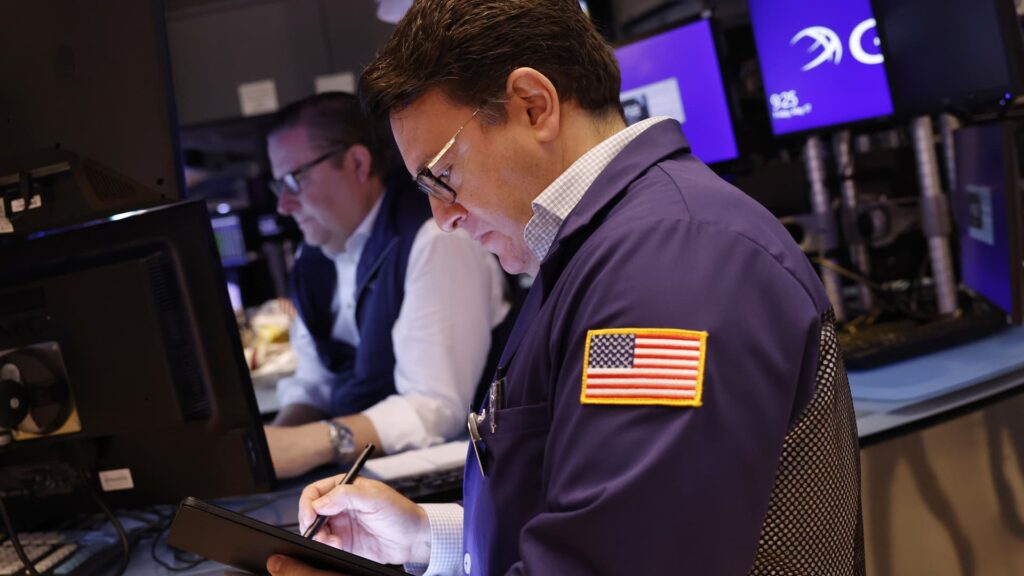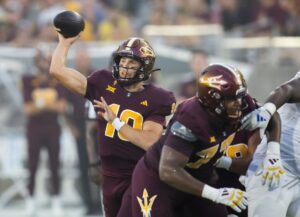
Lots of banks may be too expensive even for Jamie Dimon’s liking. JPMorgan Chase fell 4.5% on Monday after the bank’s chief executive said the stock was too expensive for the bank to buy back shares at their current valuation. (It didn’t help that Dimon also said he’s one step closer to retiring.) Speaking at JPMorgan’s Investor Day event, Dimon said, “We’re not going to buy a lot of stock with these prices … Buying back stock as a financial company greatly in excess of 2x tangible book is a mistake. We aren’t going to do it.” Tangible book value , a common yardstick used to value banks, measures shareholder equity minus the value of a bank’s intangible assets and goodwill. While the market interpreted Dimon’s remarks to mean that JPMorgan would hold off on further buybacks while its stock remains at current prices, Morgan Stanley analyst Betsy Graseck believes the CEO sent a different message. “Our interpretation is that JPM will increase buybacks slightly over the $2B per quarter pace mentioned on earnings,” she wrote in a Tuesday report. “We think over time capital optimization will come from a combination of buybacks, organic growth, inorganic growth or a potential push out beyond even 2027.” In the same note, Graseck reiterated her overweight rating on JPMorgan. Her price target of $214 implies that shares could rise 9% from Monday’s close. “We also think investors should respect [the] fact that JPM is prioritizing long term growth instead of buying back stock at a dilutive price for a quick but short lived EPS pop,” the analyst added. Following Dimon’s comments, CNBC Pro screened for banks in the S & P 500 that also sport a price-to-tangible book value of 2 or more. With a price-to-tangible book value of 2.6, Bank of New York Mellon was the most expensive name on the list. The bank has risen more than 13% this year alone. Like JPMorgan, Fifth Third Bancorp has a price-to-tangible book ratio of 2. The regional bank has rallied more than 10% so far in 2024. Earlier this month, JPMorgan upgraded Fifth Third to an overweight investment rating, citing Cincinnati-based Fifth Third’s strong balance sheet. “It has a larger share of securities maturing in 2024 and a lower securities yield overall than peers and lower yields on maturing securities,” analyst Vivek Juneja wrote. “Fifth Third is also well positioned if rate cuts come sooner than expected due to faster benefit to its funding costs, and if the economy softens it is better positioned in credit quality because it has a lower share of higher risk loans such as non-prime consumer loans and commercial real estate.” Other names on the list of expensive bank stocks included U.S. Bancorp and Discover Financial Services . — CNBC’s Fred Imbert contributed to this report.






